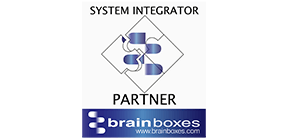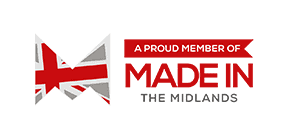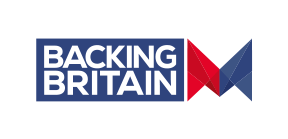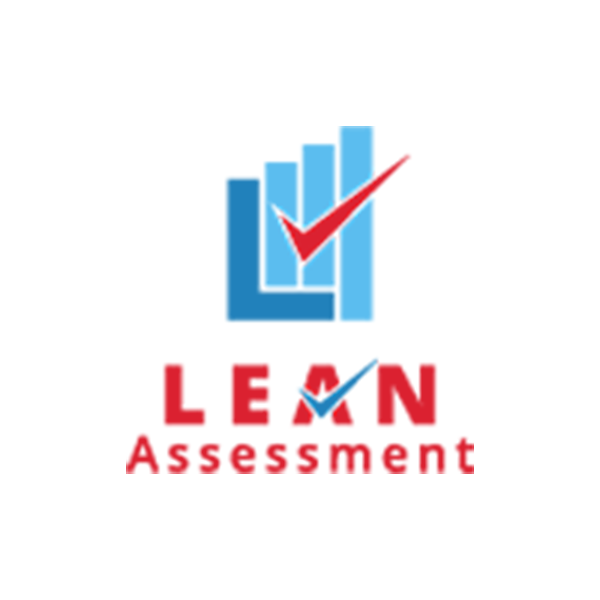Why Do Lean Manufacturers Need Digital Lean Assessment Software?
- By Brett Griffiths
- Lean Technology
- March 25 , 2021
- Share
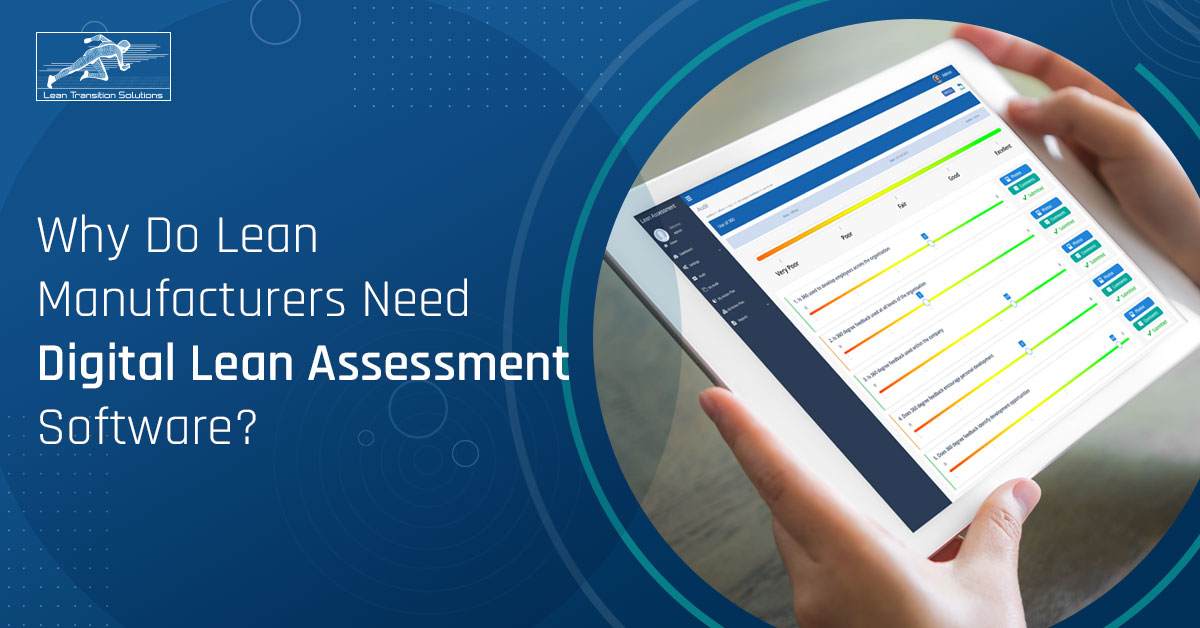
Over the years, advancement in technology has revolutionised different aspects of manufacturing. From the first Industrial Revolution to the present Fourth Industrial Revolution (Industry 4.0), one thing is certain, human inventions and developments in the field of manufacturing, aimed at improving productivity, with complete elimination of waste and human errors. The ongoing automation of traditional industrial practices helps organisations achieve the utmost level of perfection and excellence. While talking about Industry 4.0, the term 'Lean' is inevitable. The basic idea of 'lean' is to eliminate waste and inefficiency in manufacturing operations without compromising productivity. The lean approach became widely known and successful.
Nowadays, Lean tools and techniques have become a necessity for lean manufacturers. Why? From better process management to increased team morale, the benefits of Lean go far beyond. Lean initiatives help teams to lift the burden of inefficiency by empowering them to do their best work. Insightful implementation of lean is necessary for high-value manufacturing. Not just the implementation, but also assessment of these lean initiatives are important. Audits and assessments evaluate the efficiency and suitability of the lean initiatives implemented in the organisation. For years, organisations carried out audits and assessments using paper-based solutions. Manual assessment is prone to human errors and is time-consuming. Later on, organisations started using excel spreadsheets. Though spreadsheet assessment had certain advantages over manual assessments, it could not fully justify or enhance the audit process. Living in a digital world, we seek solutions that are effective, less time-consuming, not prone to errors and give utmost perfection along with easiness.
Lean Audit and Assessment - The Old Way
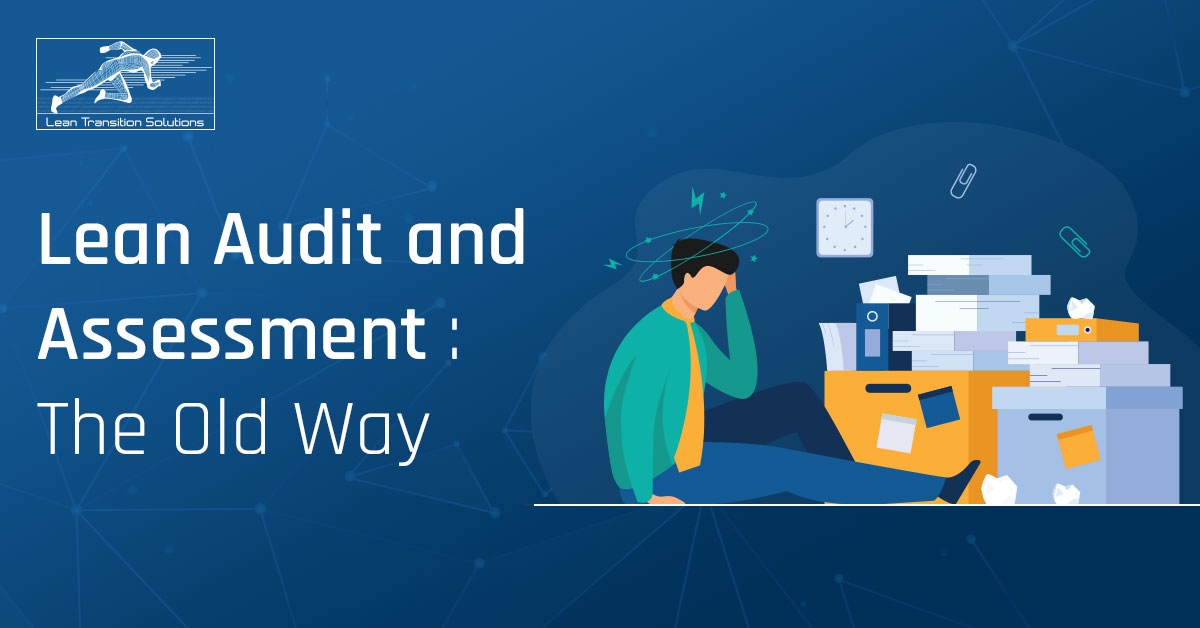
Peter Drucker's famous saying, "what gets measured, gets done", is true. An assessment suggests and creates a strong environment to improve. Lean assessment examines the performance of lean practices and offers improvements. To ensure the effectiveness of Lean methodologies, the organisation should monitor and evaluate them regularly. An effective lean assessment tool is required to identify and eliminate the wasteful practices and procedures specific to your business. Considering the traditional auditing methods, manual assessment lacks flexibility and clarity in data, whereas paper-based assessment is a lengthy process. It isn't easy to collect, analyse, and generate reports. The organisation loses its valuable time to address the concerns and implement possible changes. Manual or paper-based assessments confront the following challenges :
- Lengthy process
- Limited flexibility
- No auto-generated reports
- No scope for continuous evaluation
- Human errors
- Difficult to save time and storage
- Can't compare previous data
- No real-time data analysis
What about excel spreadsheets? Aren't they faster and reliable when compared to manual and paper-based audits? Is it not enough to keep track of the whole audit process?. These will be some of the questions that are going through your mind. Well, the answer is right here. Excel auditing will only upgrade the existing system of yours but will definitely lack the features listed below.
- Exporting and analysing data is both time-consuming and stressful.
- No data insight across multiple audits
- Time-consuming
- Live communication across the departments is not possible
- Susceptible to human errors
No More Tiring Paper Works and Complexities of Spreadsheets!
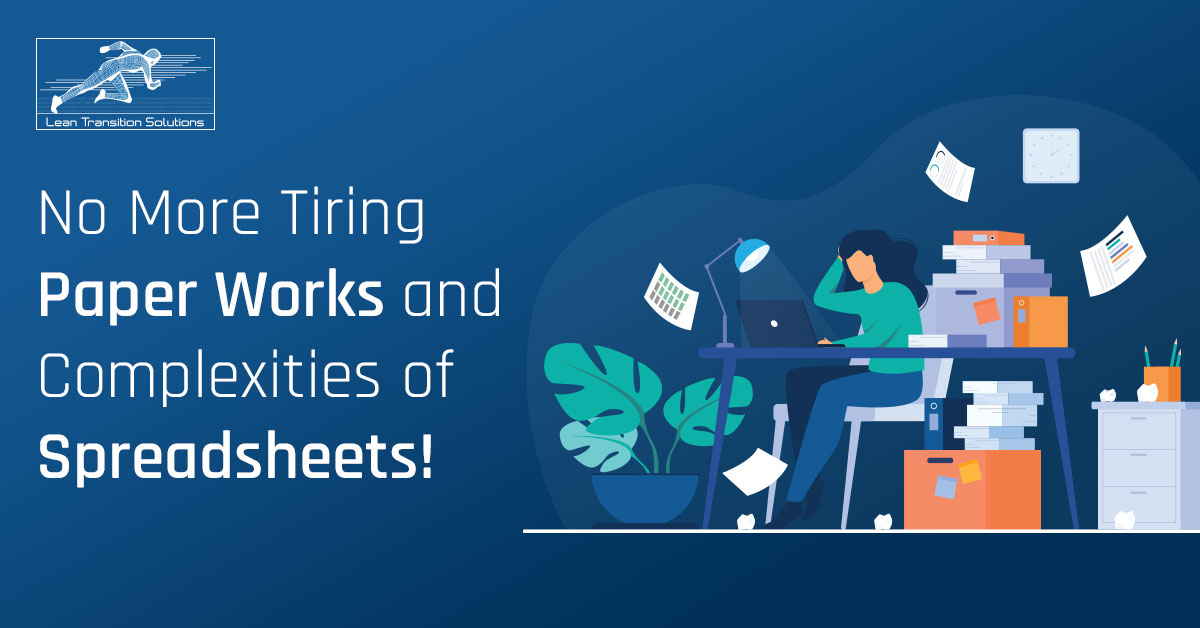
Organisations are upgrading to newer technologies to increase overall efficiency. Advancement in technologies has made information available at our fingertips. Though various digital manufacturing solutions are being developed, some still rely on paper checklists and spreadsheets to manage audits. Replacing manual, paper-based, or even excel spreadsheets with a digital or automated version of an assessment tool will ease the process of auditing and assessment. Not only will it ease the process, but it also enables organisations to get a clearer picture of the ongoing practices and possible future improvements.
What makes digital audit and assessment software feasible to organisations when compared to other traditional methods?
- Saves Time
"Time is the most valuable thing a man can spend."– Theophrastus. When we talk about advancements made earlier, all aimed at reducing the turnaround time without compromising productivity or efficiency. Paper-based audits consume a lot of time, not only to conduct the audit but also to analyse and arrive at a conclusion by comparing and contrasting them with available data.
- Dynamic Reports
No more tiring paper works. Data storage and retrieval become easy with a digital audit and assessment software. Organisations can easily store and access previous questionnaires, audit summary and reports. Previous reports will help them to measure their implementation effectiveness, and to take actions to improve their strategies
- Maintain Continuity
Any strategies implemented in an organisation should be evaluated regularly. The manual evaluation may lack clarity and is hard to streamline. With a digital audit and assessment tool, scheduling audits and carrying out assessments is no more strenuous. Carrying out a digital audit will enable the organisation to take preventive actions for recurring issues without any delay.
- Corrective Actions
An assessment software helps organisations to plan and initiate corrective actions based on the reports. These corrective actions will help organisations to standardise work and improve lean culture. To implement corrective actions effectively, responsibilities can be assigned to employees.
LTS's Lean Audit & Assessment App
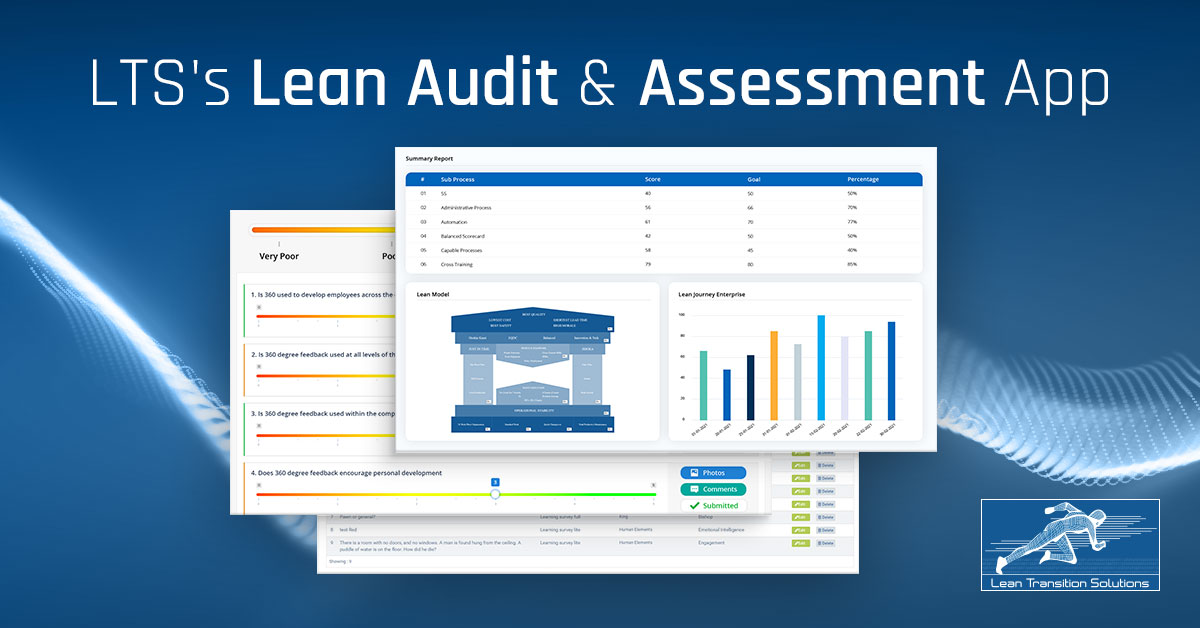
Lean Transition Solutions (LTS) have helped organisations to implement and maintain a lean culture. Using our Lean Audit and Assessment App, organisations can ensure the effectiveness of lean manufacturing culture and create an environment of continuous improvement. Lean Assessment App eases the entire process of audit and assessment. Like a story being told, each process and different stages of the audit is detailed. Using Lean Assessment Software, organisations can schedule audits with preset questionnaires for determining the effectiveness of lean culture. Auditors can carry out the audits and record their findings. If necessary, actions plans can be initiated and allocated to responsible employees. Action plans act as a forecasting tool to standardise work and improve lean culture. Auditors can document and share audit evidence seamlessly. On completing the audit, different dynamic reports are auto-generated. These reports will help organisations to easily identify the areas that need improvement. Lean Assessment App gives a timeline view of the entire assessment process, from audit creation to the final report generation. Regular monitoring of lean practices will assure an environment of continuous improvement. Manufacturers can ensure the efficacy of the lean principles implemented using a standard assessment strategy. With a digital platform to assess the Lean culture, organisations will be able to;
- Create and manage periodic lean audits
- Increase flexibility and process efficiency
- Develop a sustainable Lean culture
- Identify the pros and cons of the existing lean programmes
- View and download dynamic reports and charts
- Identify the process that needs improvement
- Get comprehensive process visibility
- Compare previous reports and suggest improvements
- Save cost and time
The future realm of manufacturing is all about adopting different digital and automated solutions. At LTS, we develop solutions that replace old school methods with the latest technologies. Our solutions are designed to enhance business processes and to bridge gaps between the current and the futuristic lean environment. By deploying the right kind of solutions with the right technologies, organisations can boost turn around time, efficiency, and coordination.
Start Free Trial
LEAN TRANSITION SOLUTIONS
The Old Vicarage, Pershore Road, Upton Snodsbury, Worcester, Worcestershire, WR7 4NR, United Kingdom.
Lean Transition Solution
-
Lean Industry 4.0 Solutions
- TITAN:Computerised Maintenance Management System
- Data Point:Computerised Balanced Scorecard
- Janus: Automated Shop-floor Data Capture System
- T-Card: Integrated Production Planning and Plant Level Execution System
- JDI: Maintenance Automation App
- Maximus: Integrated ERP System
- e-Contractor: Integrated In-house Contractor Management System
- Q-Point: Integrated Quality Management System
- Safety-Point: Integrated Health and Safety Management System
- Lean Assessment: Lean Audit and Assessment System
- Saisho: Lean 5S Audit and Assessment App
- Emergency Response App: To Manage Emergency Situations
-
Leadership 4.0 Solutions
- Your Career Academy(YCA): Learning and Development System
- YCA e-Learning : Management System
- MentorYou(MU): Mentoring App
- Leadership 4.0 : Leadership Transformation Program
- Lean Manufacturing Workshop
- Lean Manufacturing Consulting
- ILM Accredited Green Belt Training and Certification Program
- ILM Accredited Black Belt Training and Certification Program
- Software Development Service
- Resources
- Company
- Contact
